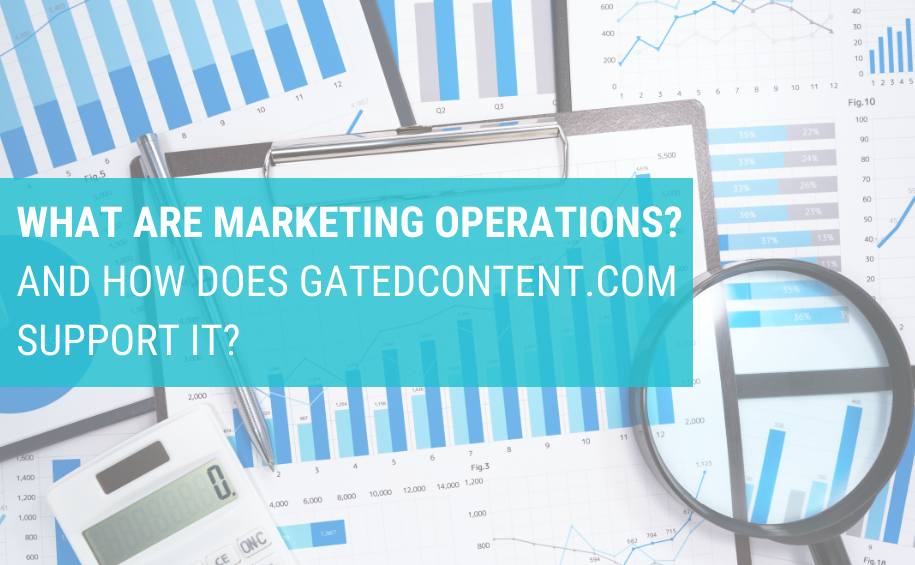What Are Marketing Operations?
Marketing operations sets the direction for internal communications, workflows, and processes. It allows marketers to work with efficiency and effectiveness using proven frameworks and data analysis toward one common and defined business objective. In other words, marketing operations is the all-encompassing term that binds together the planning, technology, data, and processes for optimal scalability.
Marketing operations works behind the scenes. While marketing operations specialists aren’t sending the email, they’re making sure it’s sent to the right person, under the right data privacy conditions and ensuring delivery. They’re not guiding someone through the sales funnel themselves, they’re ensuring that that process happens as smoothly as possible. And while they aren’t customer facing, marketing operations specialists are ensuring that the members of the marketing team who are interacting with prospects are set up for success and the customer journey is optimized from end-to-end.
Why are marketing operations important?
- Revenue Growth – Marketing operations can impact revenue by gaining an increased understanding of customer interests and patterns, generating higher-quality leads to pass onto the sales team.
- Customer Experience – Genesys found that companies that make CX an investment priority have better revenue growth (59% vs 40%) and are more profitable (64% vs. 47%) than companies that don’t prioritize CX.
- Impact and Efficiency – According to Mckinsey, marketing operations provides a 15-25% improvement in marketing effectiveness.
Without marketing operations, it becomes much more difficult to target the right clients, ensure your team understands which buyer’s stage a prospect is in and group prospects into different personas. If you don’t have marketing operations happening, marketing becomes a very manual process, and it’s almost impossible to scale.
What is the marketing operations team responsible for?
The 2021 State of the Marketing Operations Professional Report surveyed more than 750 marketing operations professionals on their job responsibilities, tech stack, team structure, and career outlook.
When asked what their primary job duties are, the report revealed these top three responsibilities:
- Designing, implementing, and optimizing operational policies and procedures that support the company’s overall strategy and goals
- Data analysis, synthesis, and reporting
- Developing and implementing software or system integrations/ systems management
- So, how are these marketing operations teams measuring their success? The report found the number one KPI for success in MOps is pipeline, followed by velocity tracking between lifecycle stages and email performance.
How does GatedContent.com support marketing operations?
GatedContent.com is a new way of deploying and managing web lead forms at scale. By templating web conversion forms (or gates) in our cloud platform with the data specifications, privacy standards and technology integrations you define, helping solve the following challenges:
Tension between the marketing and tech/web team
There are often tensions between these two very busy departments. Marketing need quick turnaround on tech or web support, in order to deliver the volume of campaigns and lead gen they’re tasked with, but the tech/web team are often stretched on other projects so lead time can be extensive. For marketing operations finding cohesion across the differing priorities of these two teams can be challenging. GatedContent.com empowers marketers by providing a simple gating tool that’s quick to use, and doesn’t depend on the tech or web team to build or deploy.
Maintaining control of multiple data sources
As a marketing ops manager it can be difficult to capture consistently accurate, clean, compliant and usable data. To do so requires standardization and templating across all marketing activity, which is challenging when working with multiple marketing teams across multiple regions or jurisdictions. GatedContent.com uses form templates that are built to adhere to business critical data requirements. Marketers have the freedom to build their own forms, but every form is based on a master template, with dynamic form updates built in dependent on the region and standardized options for marketers to select from. This gives marketers freedom, and marketing ops the data they need in a form that’s usable.
Maintain consistency in the face of fast moving deadlines and multiple projects
Marketing by its nature, especially at a larger global scale is constantly faced with multiple projects and fast paced deadlines. Neither are conducive to consistent delivery or the production of clean, usable data. GatedContent.com standardizes as much of this activity as possible, saving time and money by avoiding unnecessary mistakes and delivering clean, usable data that doesn’t require extensive cleaning or manual standardization after it’s been collected.
For more detail about the individual features and benefits of GatedContent.com take a look at the list below:
How GatedContent.com supports Data Governance
How GatedContent.com supports Web Conversion Optimization
How GatedContent.com supports Content Gating
How GatedContent.com supports Marketing Operations Efficiency
